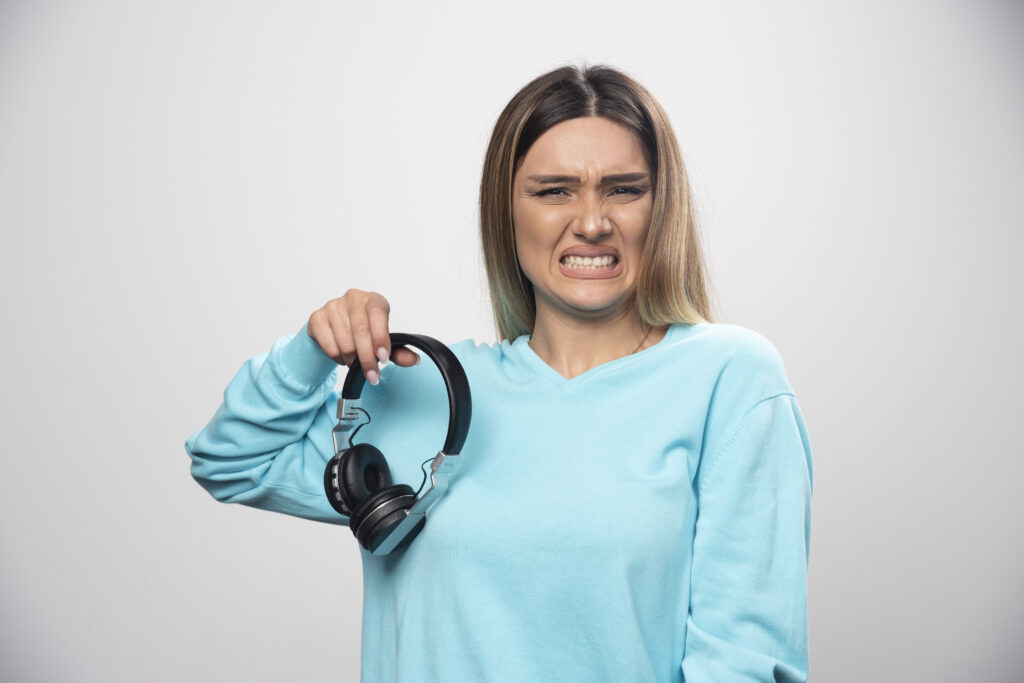
We all love our headphones, but did you know improper use can lead to ear infections and even long-term hearing damage? Cranking up the volume for too long can strain your ears, making them more vulnerable to infections and hearing loss. Following the 60/60 rule, taking breaks and using noise-cancelling headphones minimizes the risk. Small changes in listening habits can go a long way in keeping your ears healthy.
Understanding the Link Between Headphones and Ear Health
Listening to music through headphones feels great, but did you know it can lead to ear damage if not used properly? Prolonged exposure to loud sounds may result in noise-induced hearing loss (NIHL) by damaging the tiny hair cells in the inner ear. These cells help transmit sound to the brain, but they don’t recover once damaged. Keeping the volume in check and taking breaks can protect your ear’s health in the long run. Small changes in listening habits can prevent long-term harm and keep your ears safe.
Common Signs of Headphone-Related Ear Problems
Over time, excessive headphone use can lead to ear damage and even ear infections. Here are some warning signs you shouldn’t ignore:
- Tinnitus (Ringing in the Ears): If you hear a constant ringing, buzzing, or hissing, it could be a sign of inner ear damage
- Muffled Sounds: Does everything sound unclear, like you’re listening through a wall? That’s a red flag.
- Difficulty in Noisy Places: Struggling to follow conversations in crowded areas? Your hearing might be affected.
- Turning Up the Volume: If the volume of your music or TV keeps creeping higher, your ears could be compensating for hearing loss.
- High-Pitched Sounds Seem Faint: Can’t hear birds chirping or certain letters in speech? Your ears might be in trouble.
- Ear Pain or Discomfort: Long headphone use can cause discomfort and, in some cases, even infections.
- Skin Irritation: If your headphones cause itching or redness, your skin might be reacting to their material.
Your ears deserve care! Watch for these signs and give them the break they need to stay healthy.
Best Practices for Safe Listening
Protecting your ear health is essential, especially with daily headphone use. Follow these simple habits to avoid ear infections and long-term damage.
- Follow the 60/60 rule by keeping the volume at 60 per cent or lower and listening for no more than 60 minutes.
- Check your volume by making sure others cannot hear your music. If they can, it is too loud. Use volume limiters or the reduce loud sounds feature on your device.
- Use noise-cancelling headphones to block background noise, allowing you to listen at lower volumes.
- Take listening breaks to rest your ears, especially if listening at higher volumes.
- Limit exposure to loud sounds by avoiding prolonged loud environments and taking breaks in quieter areas when needed.
- Wear earplugs at concerts or noisy events to protect your ears. Over-ear headphones are a better choice than earbuds for reducing outside noise.
- Watch for warning signs such as ringing ears, muffled sounds, or trouble hearing conversations. If you notice these issues, see a doctor or audiologist.
Check your hearing regularly using apps like hear WHO to monitor your ear health.
When to Seek Medical Help for Ear Problems
Ear infections can sometimes clear up independently, but certain signs mean it’s time to see a doctor. Watch out for these red flags.
- If symptoms last more than a day without improvement, it could indicate a more serious issue.
- Seek medical help immediately if a child under six months old shows signs of an ear infection, as their immune system is still developing.
- Severe ear pain should never be ignored, as it could point to a deeper infection or damage.
- If your infant or toddler becomes unusually irritable or has trouble sleeping after a cold, it may be a sign of an ear infection needing medical attention.
- Any discharge from the ear—whether fluid, pus, or blood—is a clear warning sign of infection or injury and requires urgent care.
- Pay attention to these symptoms and consult a doctor to prevent complications and protect your ear’s health.
Conclusion
Your ears are precious, and protecting them from headphone damage is essential for long-term ear health. Safe listening habits—like keeping the volume in check, taking breaks, and using noise-cancelling headphones—can prevent ear infections and long-term ear damage. Ignoring these precautions can lead to serious issues like hearing loss and tinnitus, impacting your everyday life.
If you’re experiencing any signs of ear damage, don’t wait for the problem to worsen. At Satkriti Hospital, our team of expert ENT specialists provides top-notch care for all ear-related concerns. From early diagnosis to advanced treatments, we ensure that your hearing health is in safe hands. Whether it’s ear infections, tinnitus, or any other ENT disorder, Satkriti Hospital is your one-stop destination for expert care. Take charge of your ear health today—small changes now can save your hearing for the future!